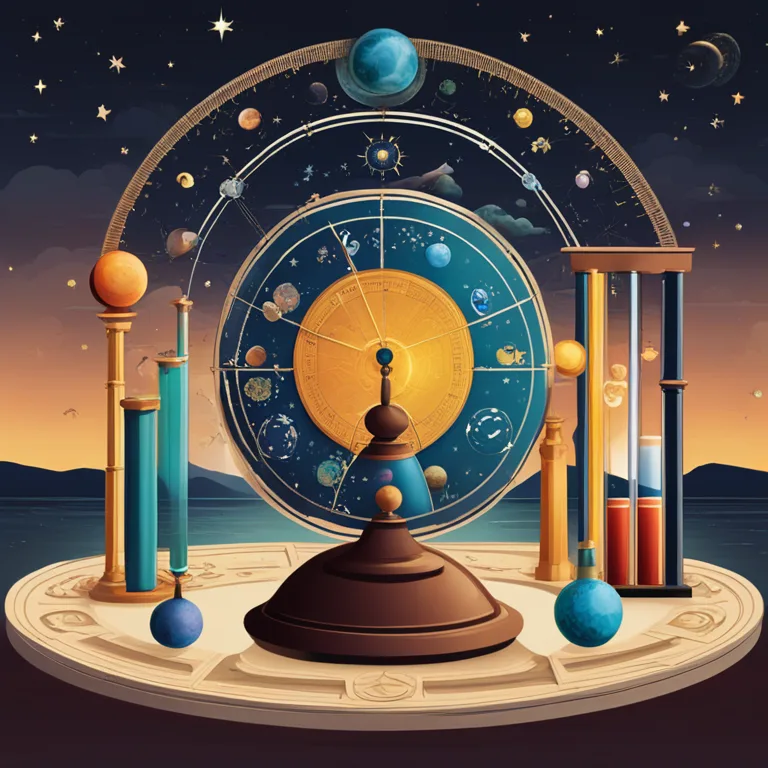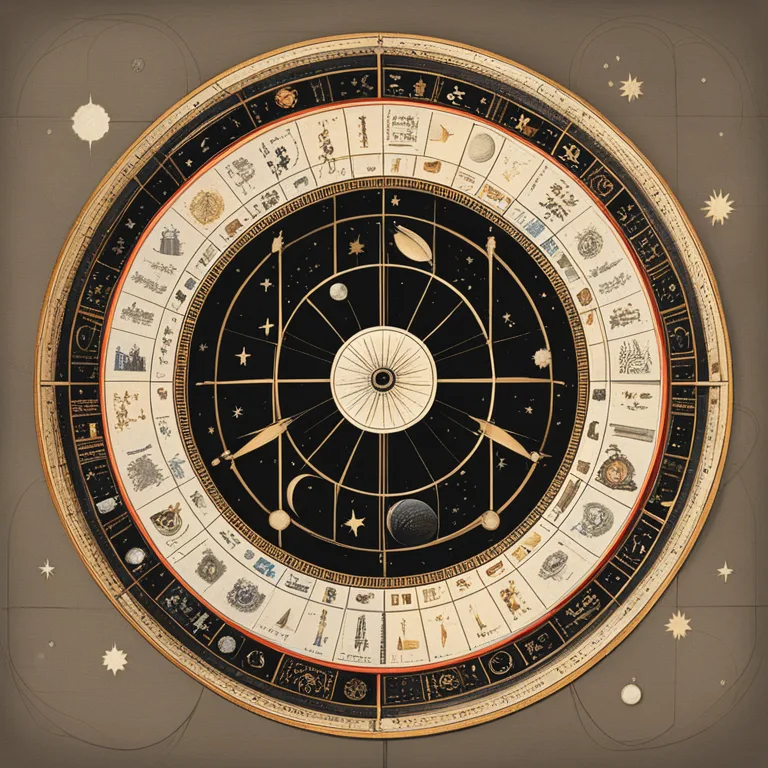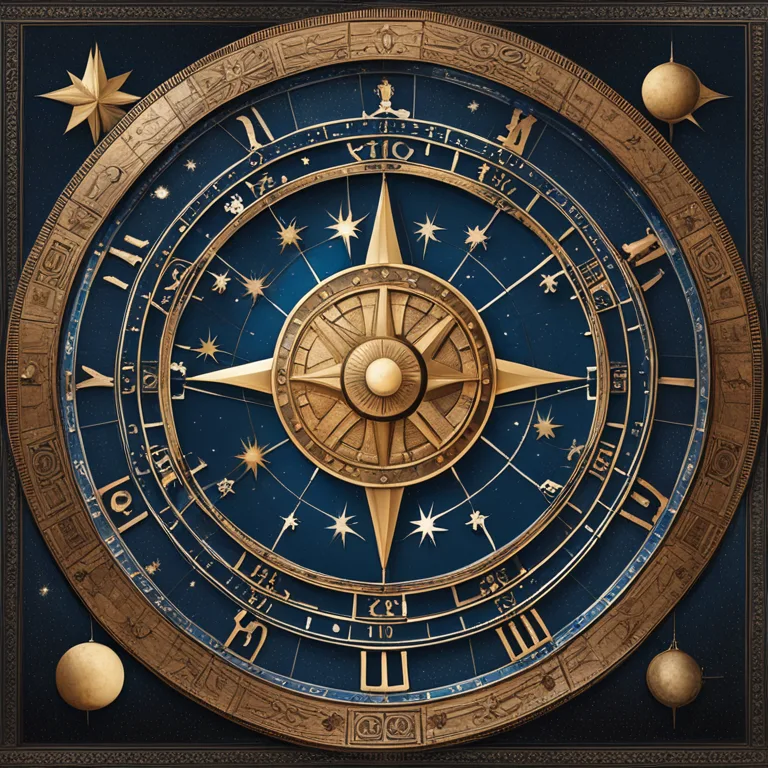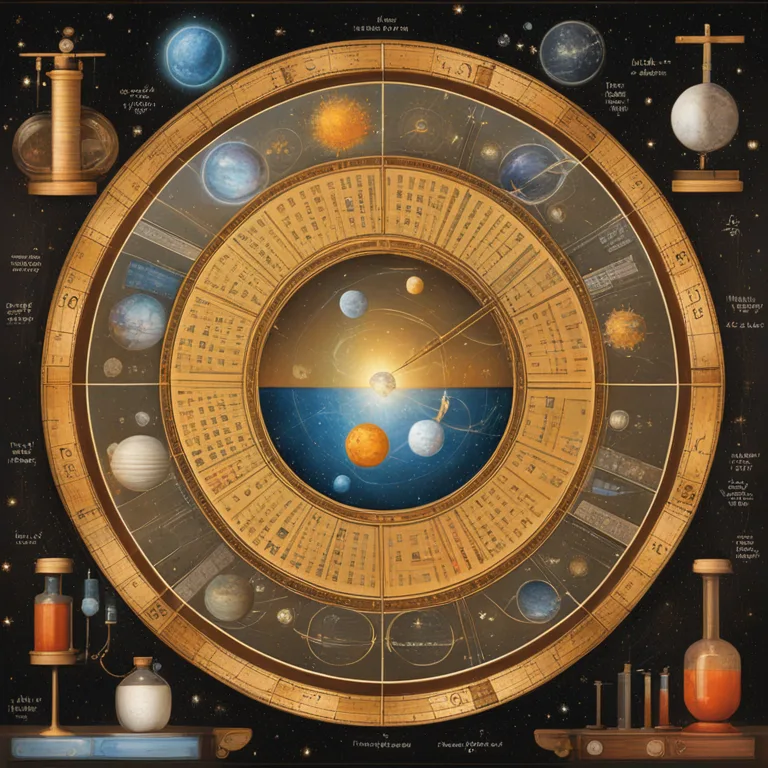
The Intersection of Astrology & Science
Delve into the complex relationship between astrology and science, examining the legitimacy and skepticism surrounding astrological practices.
article by Priya Deshmukh
Astrology's Ancient Roots
Astrology, an ancient practice that dates back thousands of years, has long fascinated human culture. Predicated on the belief that celestial bodies influence Earthly events and individual destinies, astrology has maintained a persistent presence alongside evolving scientific paradigms. Despite the scientific revolution, which bolstered empirical evidence and rationalism, astrology continues to captivate millions with its promise of insights drawn from the stars. This cultural mainstay persists, blending ancient symbolism with contemporary concerns, adapting to an ever-changing society that both embraces and questions its relevance.

The Scientific Stance
The scientific community, characterized by a rigorous method of inquiry, generally dismisses astrology as a pseudoscience. This stance is rooted in the absence of empirical evidence to support the efficacy of astrological predictions. Scientists argue that astrology lacks the falsifiability criterion essential for scientific theories—predictions are not specific enough to be tested and potentially refuted. Furthermore, the principles of astrology do not correspond with established understandings of physics and astronomy, particularly with regard to the alleged influences of celestial bodies on human lives.

Modern Astrological Practice
Astrologers in the modern era have refined their craft, incorporating psychological archetypes and self-reflection into their readings. They argue that astrology serves as a tool for introspection, offering symbolic narratives that can resonate with an individual's life experiences. For 2024 forecasts, astrologers consider the positions of planets such as Jupiter and Saturn, noting their potential influence on societal trends and personal growth. While acknowledging the scientific skepticism, they emphasize that astrology's value lies in its capacity to provide personal meaning, rather than pinpoint predictions.

Validity and Evidence
Debates concerning the validity of astrology often center on the lack of empirical evidence. While anecdotal reports and testimonies of positive astrological experiences abound, the scientific community seeks reproducible results under controlled conditions. Astrology, lacking such rigor, is often excluded from the realm of legitimate scientific inquiry. However, proponents of astrology counter that the subjectivity of human experience and the symbolic nature of astrological interpretation resist conventional scientific testing.

Psychological Perspectives
From a psychological standpoint, astrology can be analyzed in the context of personality theories and cognitive biases. For instance, the Barnum effect explains how individuals find personal accuracy in vague and general statements. This phenomenon could account for the widespread appeal of horoscopes, which often contain broad and non-specific language, permitting diverse personal applications. Despite this, many find comfort and guidance in astrological readings, which can play a therapeutic role akin to other belief-based systems.
The Place of Astrology in Society
Astrology's place in contemporary society is paradoxical; it is both marginalized by scientific rationalism and embraced as a cultural or spiritual practice. Online platforms and social media have amplified its reach, allowing astrology to thrive in digital spaces. The future astrological outlook for societal acceptance appears mixed, with Saturn's expected influence hinting at sustained skepticism, while Jupiter's positioning suggests a continued expansion of interest. Whether or not astrology will ever align with scientific criteria, its enduring presence signifies a human desire to find meaning in the cosmos.
Published: 12/29/2023
Modified: 12/29/2023
More predictions
Come back here soon to learn more about yourself and your future


The Rhythms of Your Birth Chart
Delve into the significance of your birth chart and what the celestial patterns at your birth reveal about your potential, personality, and life path.


Birth Charts: A Beginner's Guide Explored
Delve into the basics of birth charts, the celestial snapshot of your potential. Learn how they influence personality and life in our beginner's guide.


Birth Chart: The Powerful Role of Jupiter
Explore the powerful role of Jupiter in astrology and its profound impact on our personal growth, luck, and life philosophy in the birth chart.